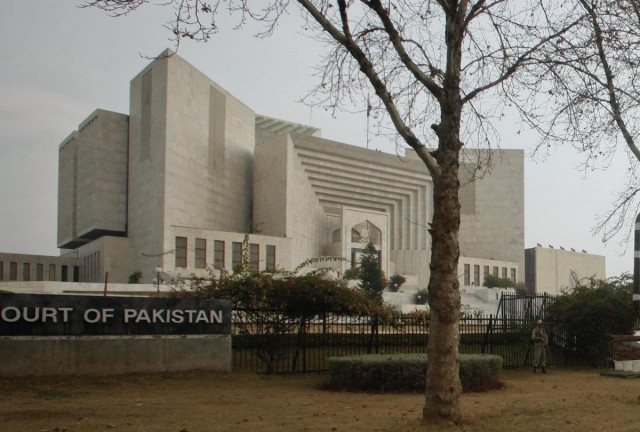Overstepping jurisdiction: ‘SC cautious in suo motu actions since 2014’
Justice Ejaz says: ‘We are walking on a tightrope and one wrong step will bring us down’

Supreme Court of Pakistan. PHOTO: REUTERS
The judge said: “We analysed our limitation … In the past where we overstepped our jurisdiction, we were caught in sticky mud.” He said they had learnt from history that the apex court should remain within its jurisdiction prescribed in the Constitution.
Sindh health dept: CJP takes suo motu action over illegal promotions
A two-member bench, headed by Justice Ejaz Afzal Khan, was hearing a petition on non-payment of salaries, provident funds and appointment of chief executive officer of Pakistan Steel Mills.
Barrister Ali Zafar filed a petition on behalf of PSM workers. However, Justice Ejaz said: “This case is not fit for taking action under Article 184(3) of Constitution”.
He said that grievances mentioned in the petition could be addressed before a high court or forums established under the statutes. He said the jurisdiction under Article 184(3) was limited and could only be extended if a large segment of population’s fundamental rights were involved.
Justice Ejaz asked the attorney if he did not notice how conservative the court had become since 2014, adding; “We are walking on a tightrope and one wrong step will bring us down.”
Justice Qazi Faez Isa asked if the court was a competent forum to run PSM’ affairs, adding: “Can we grant relief even in a single point of his petition.”
Citing a number of Supreme Court judgments, he argued that the apex court had passed several orders for payment of salaries and appointment of chief executive.
Suo motu action: SC takes notice of arrest warrants against LHC judge
Justice Ejaz asked what happened in the later part of all those cases.
Justice Qazi remarked that all such SC judgments might be the reason why the apex court had stopped taking suo motu actions.
The judge asked him if he considered the intervention by the top court was good or not?
Upon this, Ali stated that the court’s first intervention to stop privatization of PSM in 2005 was not a good decision.
Published in The Express Tribune, June 25th, 2016.



















COMMENTS
Comments are moderated and generally will be posted if they are on-topic and not abusive.
For more information, please see our Comments FAQ